FEATURES • DESTINATIONS
Sustainability on a
Remote Island:
Exploring
the Innovative Batu
Karang Approach
Words & Photography by The Punch
A short 30-minute boat ride from Bali’s eastern shores brings you to Batu Karang Lembongan Resort & Spa, an upscale haven perched on the coral slopes of Nusa Lembongan with remarkable ocean views. The forward-thinking resort surpasses its luxurious accommodations and top-quality amenities; it’s a place with its own narrative. Batu Karang breaks away from the overbearing stereotype of typical resorts, equipped with a state-of-the-art water treatment plant, a comprehensive sewerage system, and a gorgeous hydroponic garden, among other features.
Troy Sinclair, hailing from the laid-back coastal town of Noosa Heads, Australia, first fell in love with Nusa Lembongan on a surfing trip to Indonesia more than 20 years ago. The island’s magnetic energy and the breathtaking view of Mount Agung captured his heart. His father, Alan Sinclair, was similarly inspired after seeing photos of the island’s stunning vistas, and soon a new journey commenced. Over cold Bintangs on a balcony, the Sinclairs were introduced to a respected figure in the Jungut Batu community, who not only became their local sponsor but was welcomed into the family. Drawn by the island’s serenity and peaceful spirit, the Sinclairs began building on the white coral landscape, eventually giving life to “Batu Karang,” a reflection of the island’s raw beauty and its intimate link to its culture.
With roots in hospitality and development, the Sinclair family’s venture in Bali was a natural progression, with each member bringing their unique expertise to create something spectacular on the island. Alan, the father, spearheaded the design and construction as the project manager, while Liz, the mother, brought her passion for spas and nurturing people into the mix. Their eldest son, Troy, immersed himself in the local culture, mastering the language and operations, eventually being embraced by the community. Alex, the daughter, channeled her love for design and marketing, rounding out the vision. Meanwhile, Ashley, the middle son, focused on organizational maintenance and workplace safety, making sure everything ran smoothly behind the scenes.
What began with the construction of two family villas quickly evolved into a thriving oasis–40 keys, a conference center, gym & steam room, restaurant, café, bar, ice creamery, and spa–each element reflecting the Sinclair family’s collective vision and dedication to the island’s future.
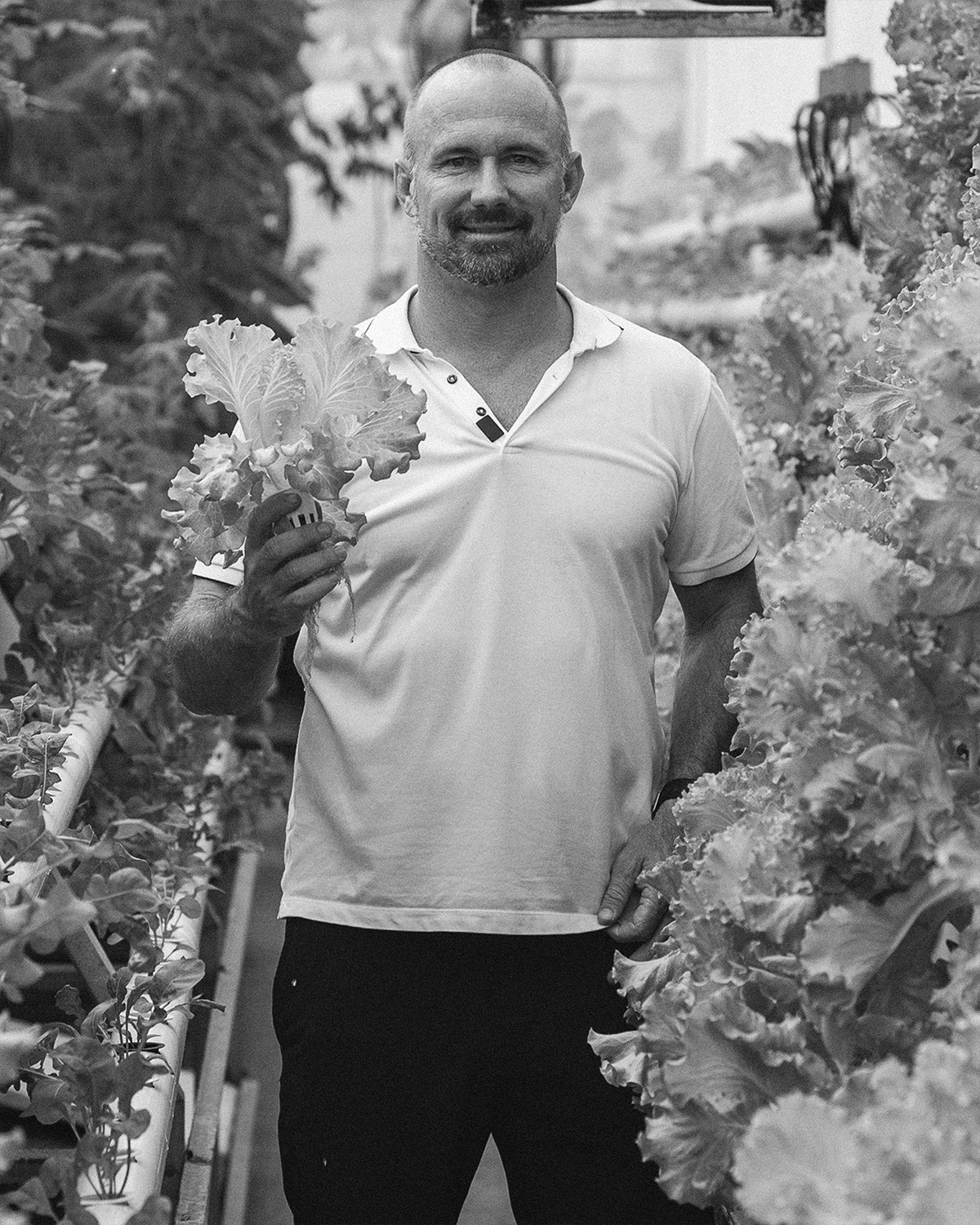
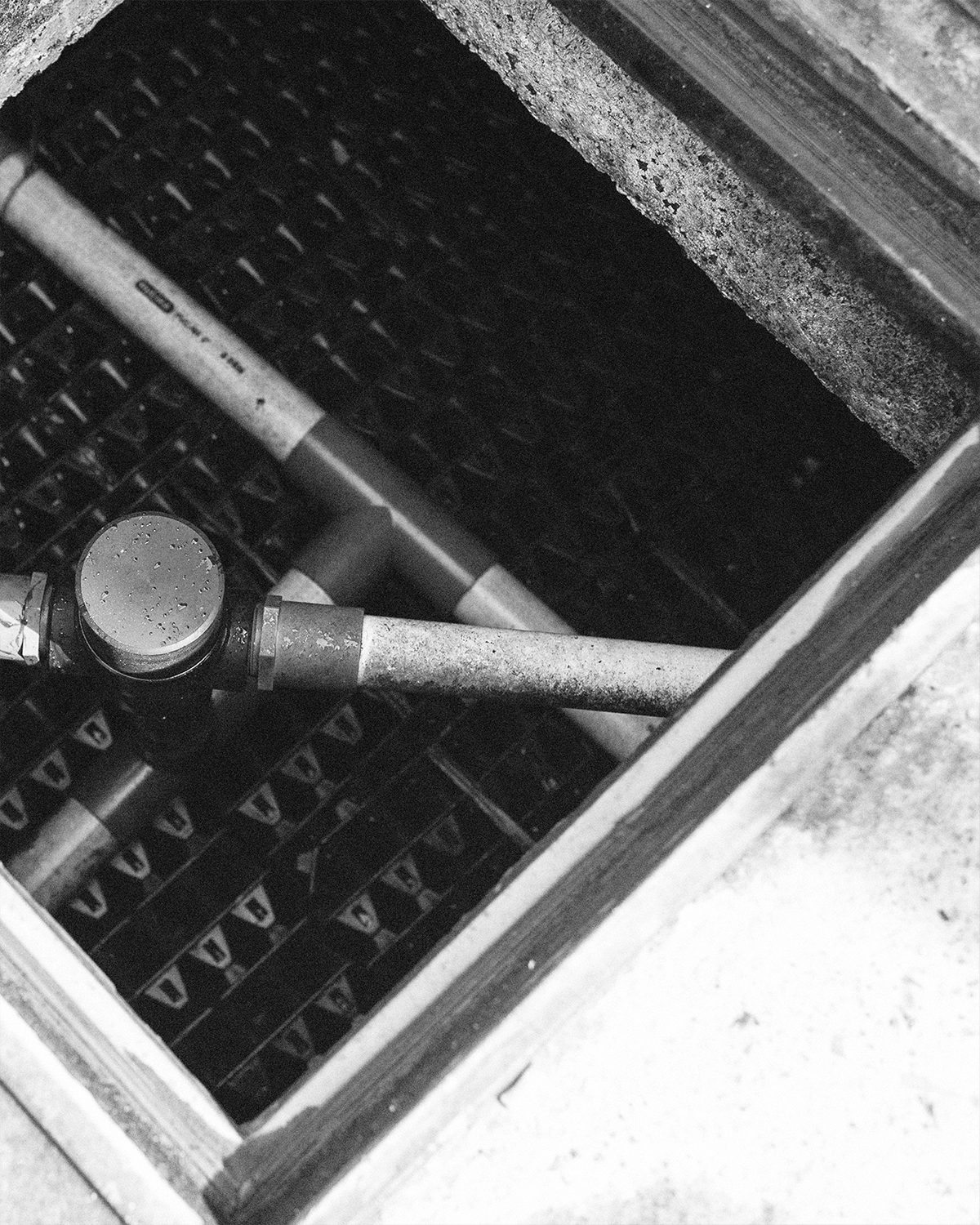
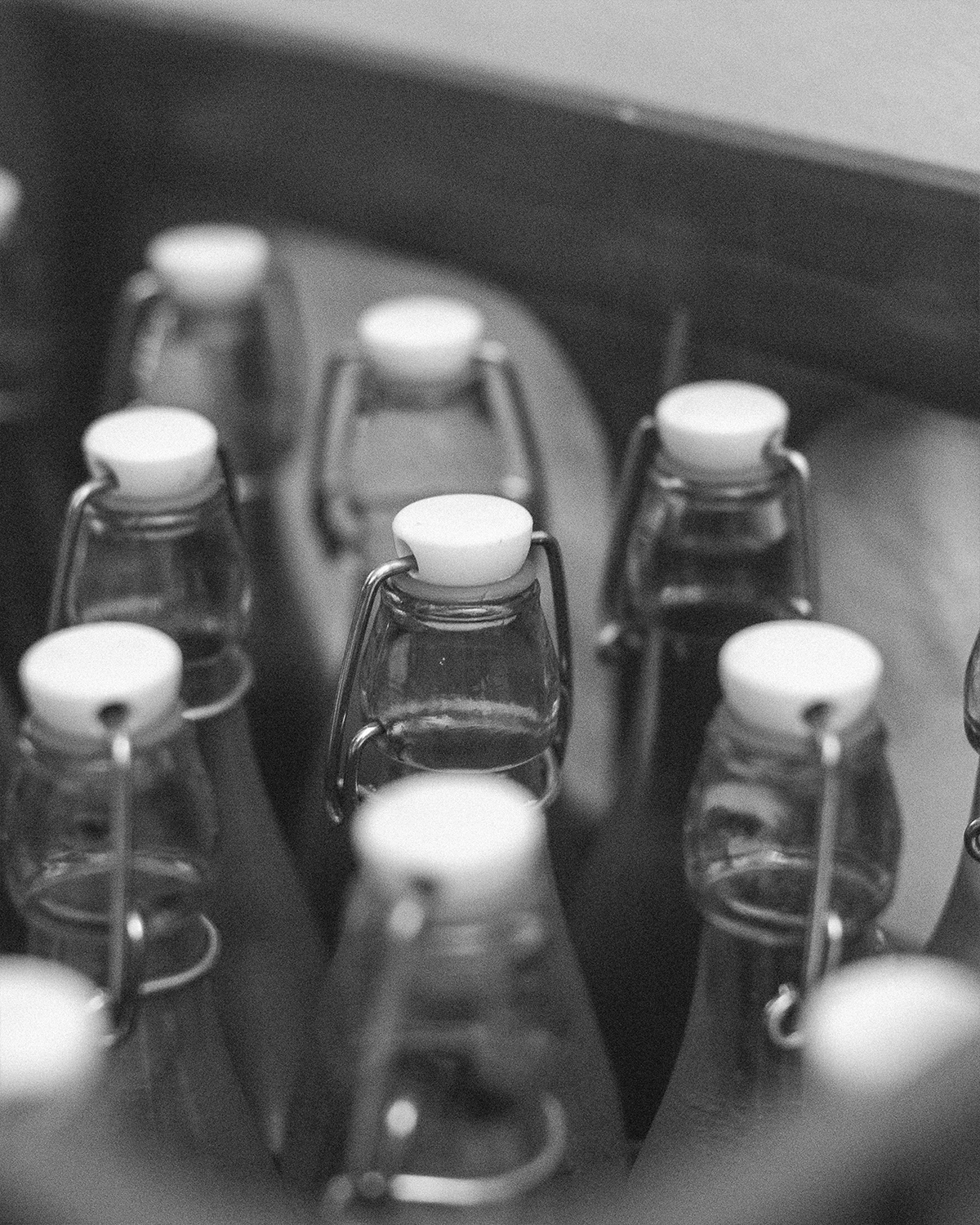
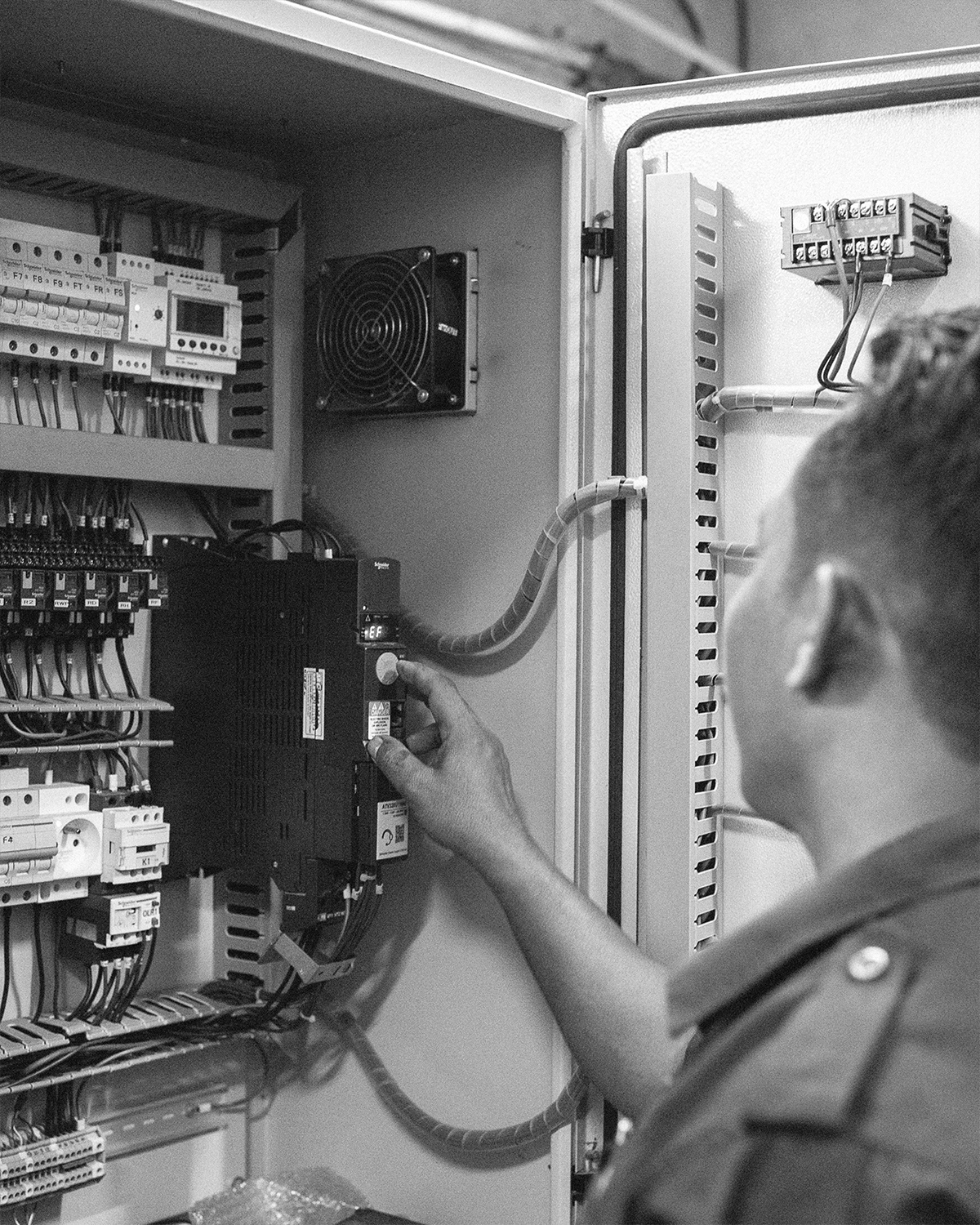
EMBRACING ISLAND'S ESSENCE
When the project took flight, the aim was clear for Batu Karang: to set a new benchmark for sustainability. Confronted with the island’s sparse infrastructure–no sewage system and erratic electricity–the Batu Karang team took on the challenge. Committed to innovation, they explored better energy sources and sustainable waste management practices. The venue pioneered solutions to reduce its environmental footprint while celebrating the island’s essence. By intertwining modern sustainability with the rich cultural heritage of Bali, they created a space that reflects the island's beauty and spirit, inviting guests to connect deeply with their surroundings.
WATER IMPACT ACTIONS
At Batu Karang, sustainability is in every piece of their operation. The journey begins with the island’s lifeline: water. Confronted with the challenge of limited fresh water and infrastructure, the team installed a state-of-the-art water treatment plant. This system draws from the island’s wells, purifies the water, and channels it to the resort’s rooms. The result is a steady, efficient water supply that prolongs the lifespan of taps and showerheads, cutting down on replacements and reducing waste.
The comprehensive sewerage treatment plant processes the wastewater from rooms, kitchens, and communal areas, recycling it into nutrient-rich water for irrigation. The gardens flourish under this system, and the water table benefits as excess moisture which seeps back into the earth. To further enhance this cycle, absorption wells collect rainwater and channel it into the ground, creating a harmonious balance with nature. Plastic reduction is another key focus, with an on-site bottling plant that treats water and bottles it in glass, significantly reducing reliance on single-use plastics. Guests are encouraged to support these efforts through a towel reuse program, which helps conserve water and energy by opting to keep towels longer, contributing to a larger environmental impact.
THE POWER OF HYDROPONIC GARDEN
One of the most pressing challenges at Batu Karang Lembongan Resort & Spa has been maintaining a steady supply of fresh produce for its dining venues, The Deck Cafe & Bar and Muntigs Bar & Restaurant. With most vegetables, fruits, fish, and meat transported from Bali, ensuring freshness can be difficult, often leading to higher costs and unnecessary waste.
To address this, Batu Karang established an on-site hydroponic garden, cultivating high-demand ingredients for daily use. Each day, the chefs at The Deck and Muntigs create menus that highlight what has been freshly harvested, allowing guests to enjoy dishes crafted from ingredients straight from the garden. While the garden cannot supply everything, this thoughtful approach has greatly enhanced both the quality and sustainability of the resort’s culinary offerings, delivering fresh, vibrant flavours for every meal.
ENGAGING THE COMMUNITY IN BEST PRACTICES
At Batu Karang, the obligation to ecological balance is at the heart of the local community, demonstrated by initiatives such as replacing plastic straws with recyclable alternatives and switching from glass to aluminum cans, which are crushed and transported back to Bali for recycling. Partnering with the Lembongan Recycling Company makes sure that waste is sorted and redirected to recycling facilities, while collaboration with nearby farmers transforms organic waste into valuable feed for livestock, making one’s own zero-waste philosophy.
The resort’s used kitchen oils find a second life as biodiesel, thanks to a local family’s innovative energy solutions. In support of local enterprise, Batu Karang backs the Good Karma Seaweed Group, which turns locally harvested seaweed into emulsification jelly cubes. These nutrient-rich cubes cohere beautifully into their Good Karma smoothies, supporting both ecological balance and local agriculture.
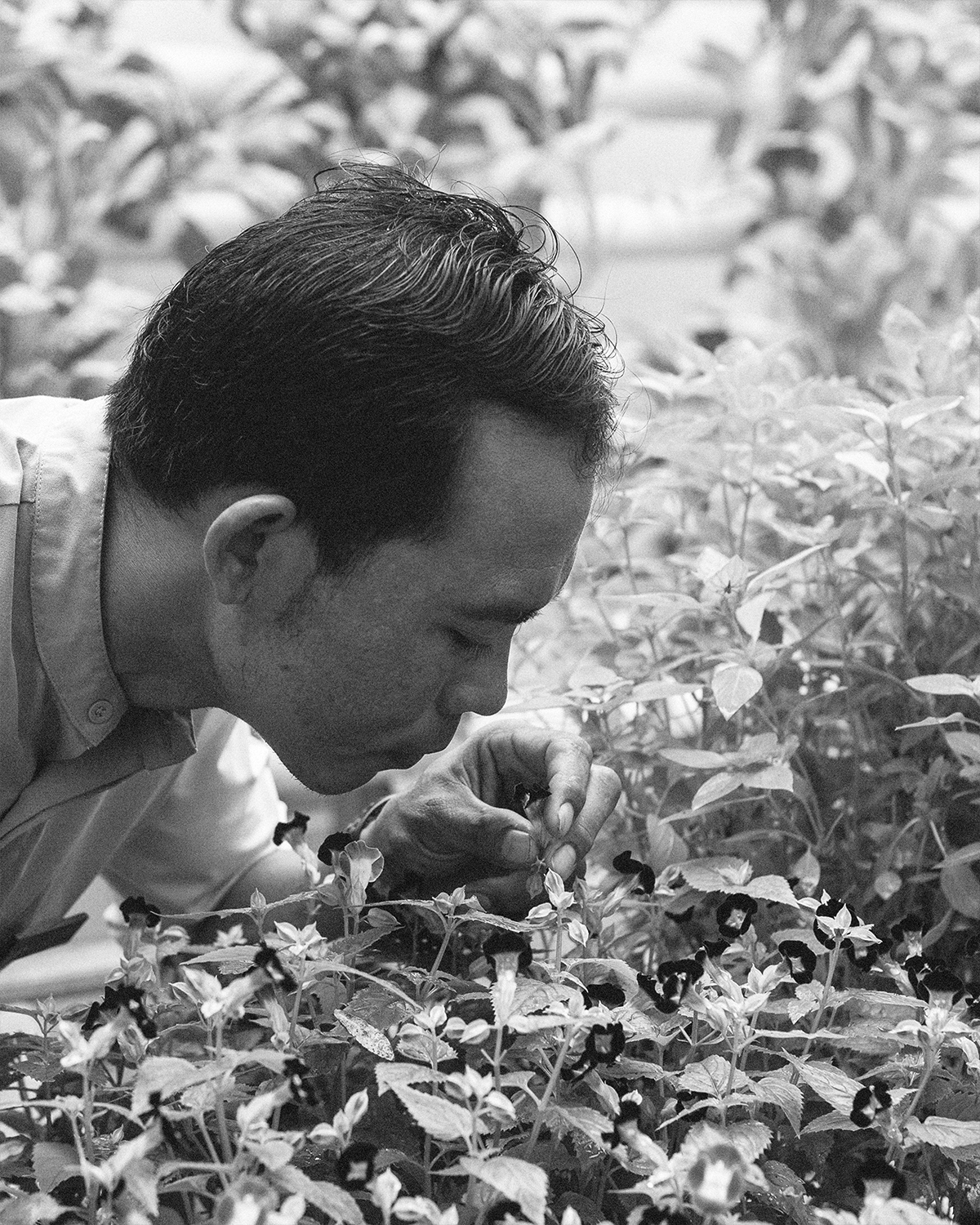
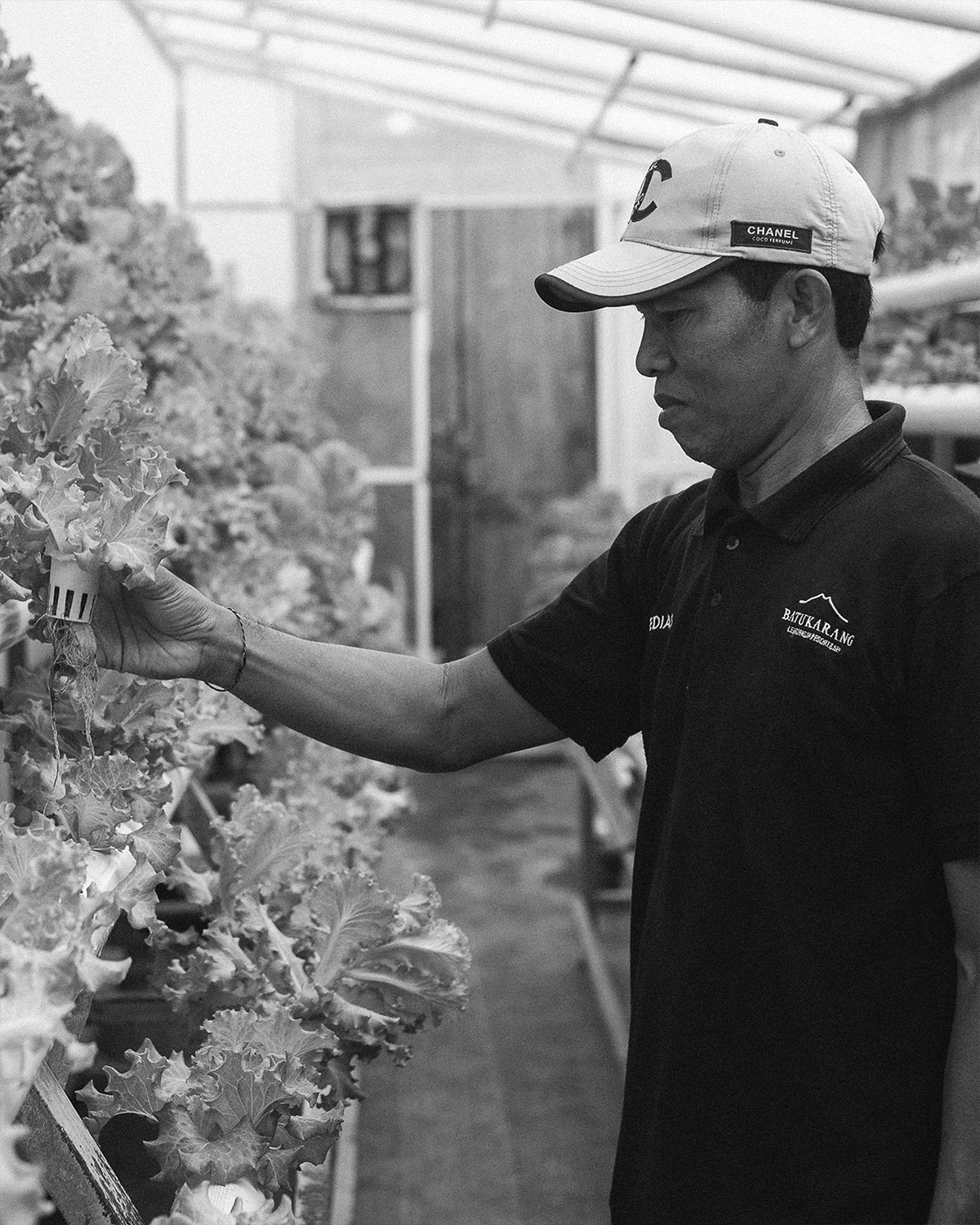
FUTURE VISIONS OF BATU KARANG
Guests increasingly expect a genuine duty to environmental responsibility, seeking natural beauty for preservation, and when they find a place like Batu Karang, which puts sustainability first despite the costs, it resonates deeply with them.
Soon, Batu Karang will embark on a journey to expand its current initiatives, using cutting-edge technologies for efficiency and capacity in processing and recycling. They explore the transformative potential of solar power, aiming to lessen their dependence on the island’s fragile electricity grid. As a sprawling property, reducing electricity consumption not only serves the environment but also liberates resources for the local community on the island, where power is a precious commodity.
They intend to set a precedent for future endeavors, inspiring a ripple effect of projects shared by dedication to environmental responsibility. By steering this path, they hope to inspire novel ideas, encouraging others to join in and contribute to preserving the island’s pristine beauty for generations to come.
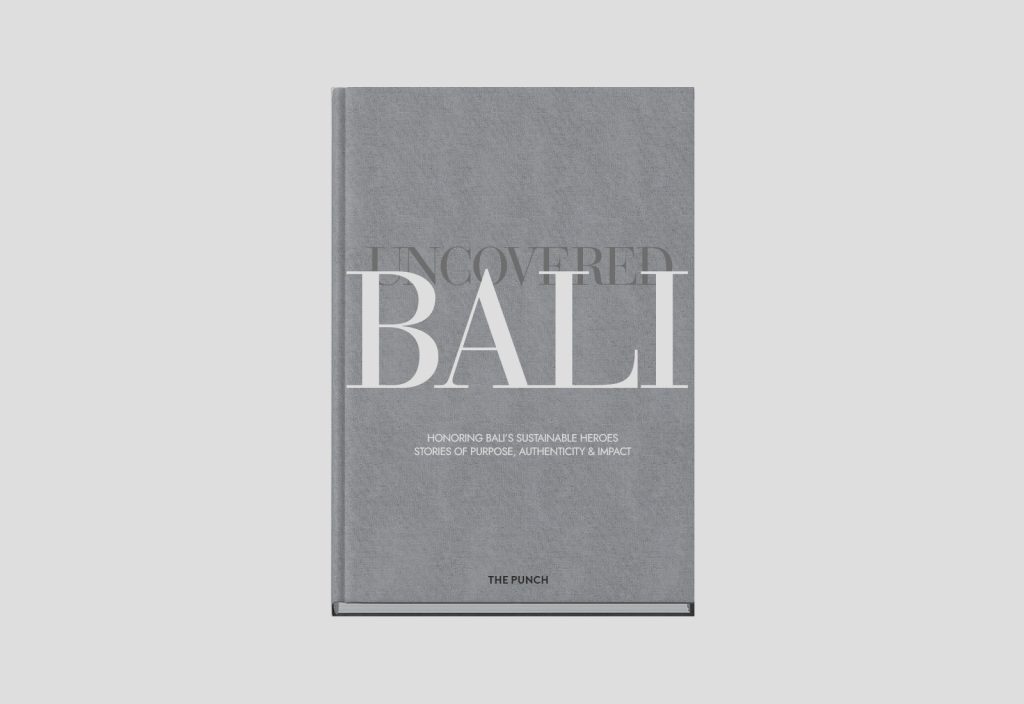
EXPLORE THE FULL STORY IN UNCOVERED BALI BOOK
Uncovered Bali is a collective project showcasing the sustainable journeys of carefully selected Bali businesses to a global audience. Each story highlights the unique impact these enterprises have on preserving Bali’s cultural and environmental heritage while driving positive change. Through this project, we aim to inspire global leaders, travelers, and communities to embrace more sustainable practices and appreciate the powerful role that local businesses play in shaping a better future.
EXPLORE THE PUNCH

